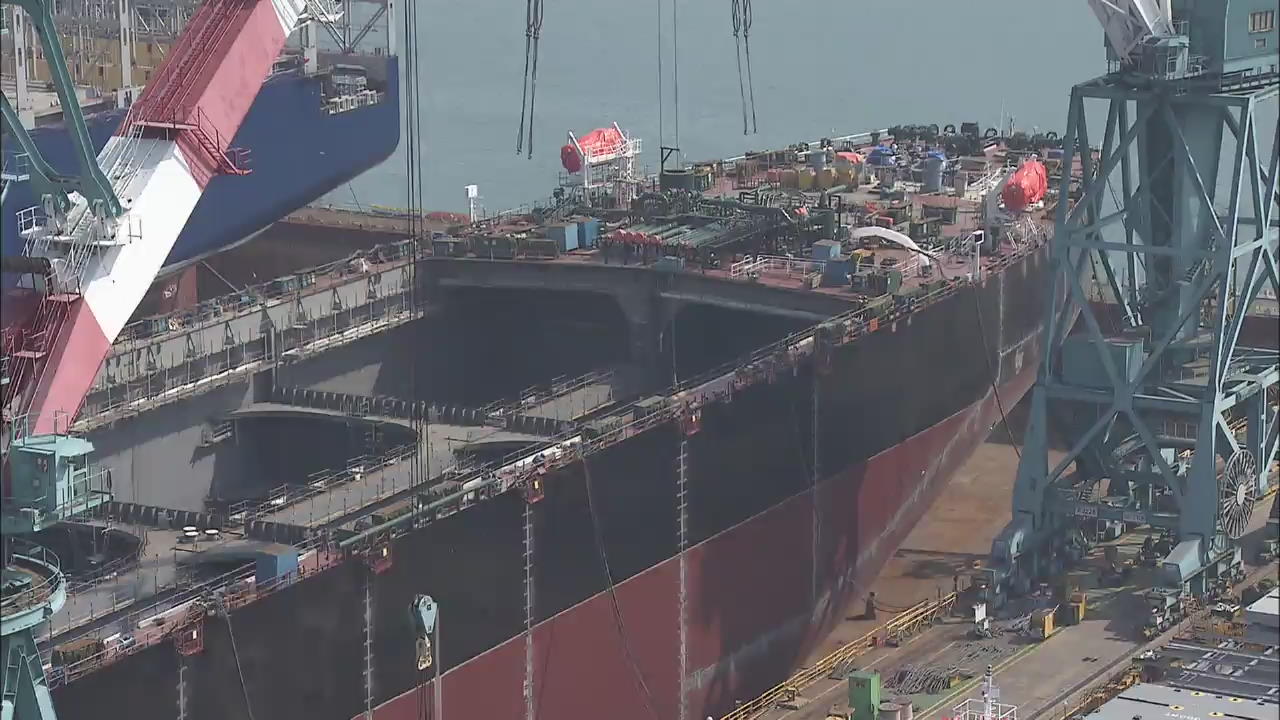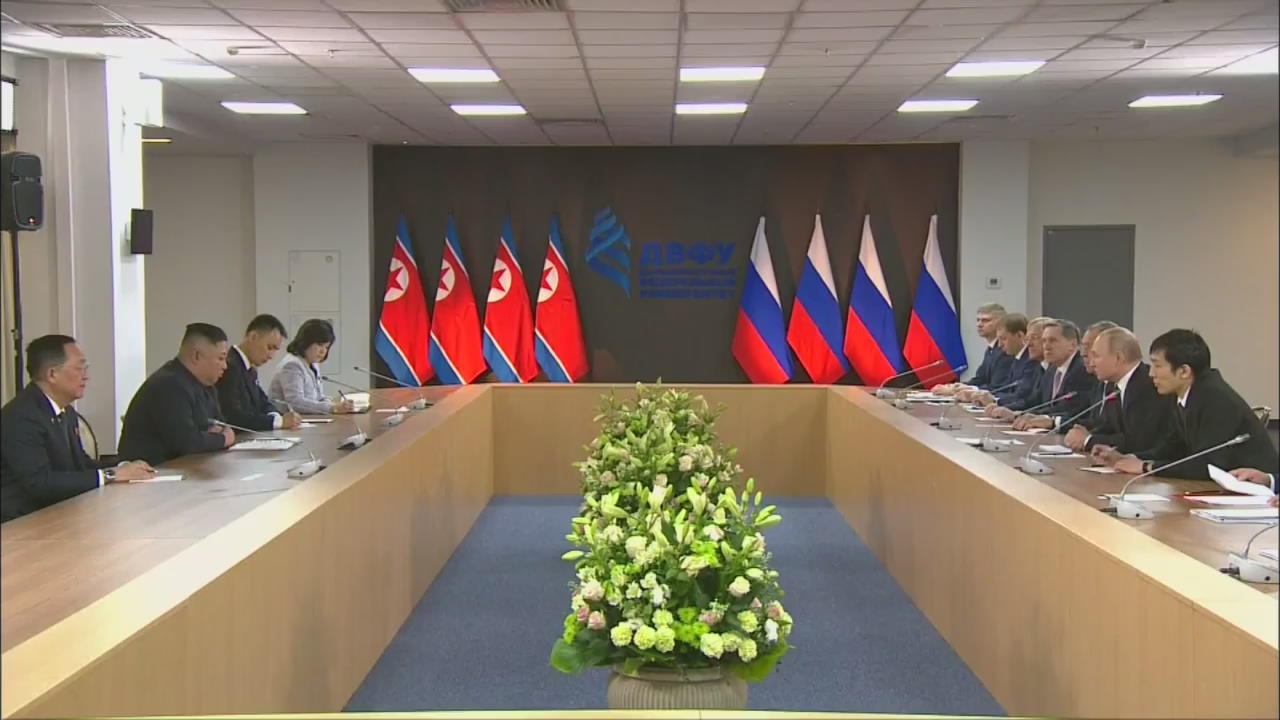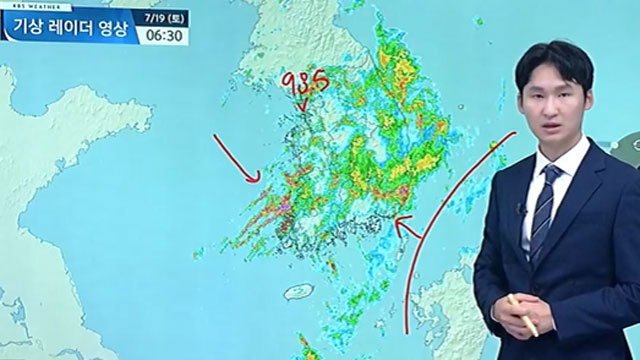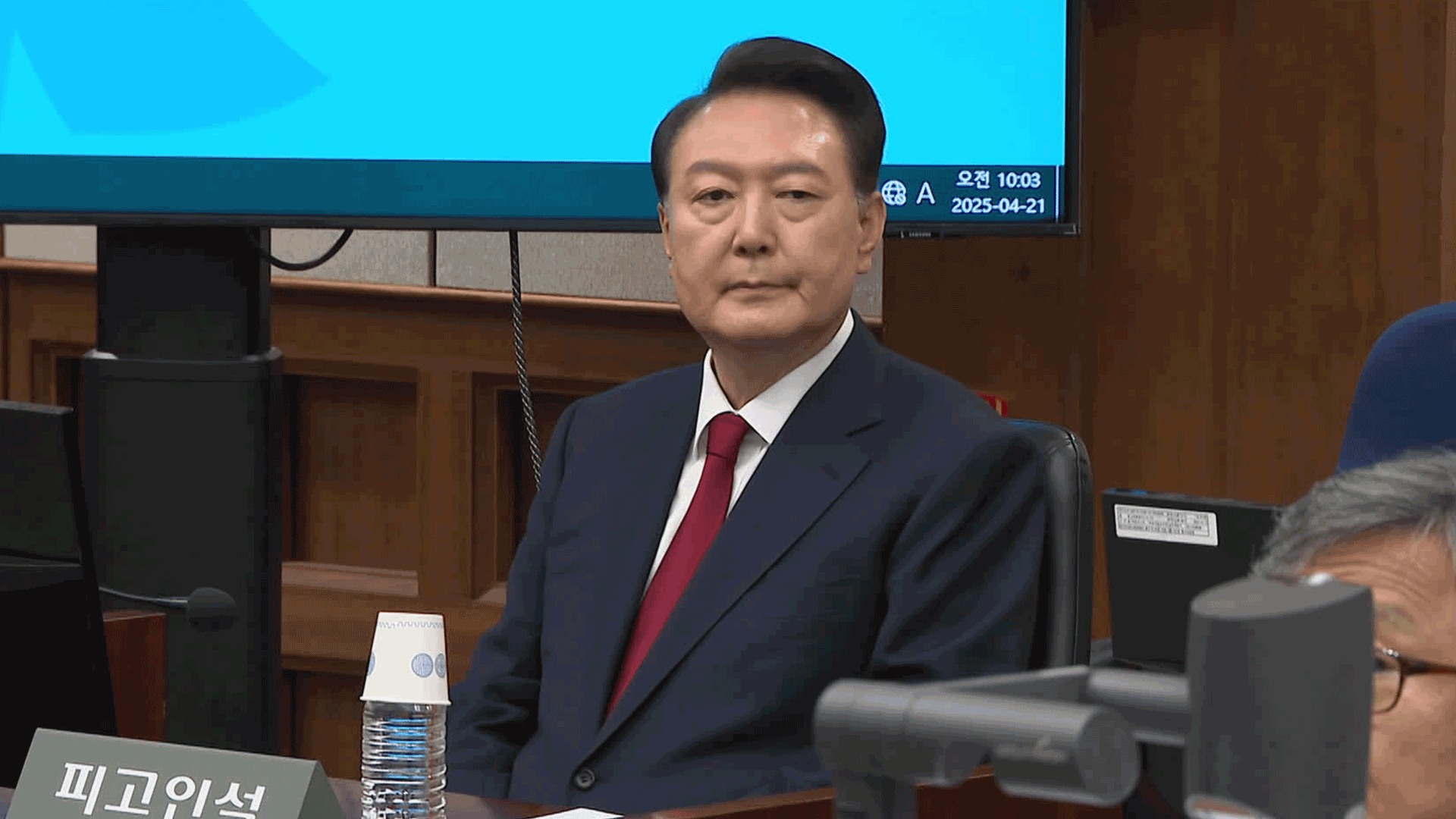ECONOMIC GROWTH
입력 2019.04.26 (15:02)
수정 2019.04.26 (16:49)
읽어주기 기능은 크롬기반의
브라우저에서만 사용하실 수 있습니다.
[Anchor Lead]
Korea's economic growth posted a deficit in the first quarter of 2019, the worst performance in more than a decade. This stems from sluggish exports and plunging facility investment. We have the details.
[Pkg]
The Korean economy contracted 0.3 percent in Q1 compared to the final quarter of 2018. It's the largest economic decline since the 2008 global financial crisis. The primary factor behind the recession is plunging facility investment. There was a near 11 percent dip in the semiconductor manufacturing and transportation sectors, the largest decrease since the 1998 Asian financial crisis. Exports continued to decline for the second consecutive quarter. The nation's imports also shrank. Making matters worse: the government's economic contribution, which led the economic expansion in Q4 2018, has also decreased. Even if the budget is executed early, launching new social overhead capital projects in the first quarter would be difficult.
[Soundbite] PARK YANG-SOO(BANK OF KOREA) : "The economic growth momentum remains weak due to sluggish investment and declining exports since the end of 2018. There's also comparatively lower government spending."
As concerns over the economic slowdown continue to rise, the Bank of Korea pointed out growth engines in the private sector do not look that bad, and that many temporary fiscal and consumption factors stalled the economic growth. The BOK added, given the government's supplementary budget and the rebound in the semiconductor sector in the second half, the Korean economy will likely be able to achieve the revised 2.5-percent economic growth projected for 2019. However, to achieve the central bank's projected growth rate of 2.3 percent for the first half, the Korean economy would have to expand 1.5 percent in Q2, which many say won't be easy. The local currency's value against the greenback surpassed the 1,160 won mark for the first time in two years and three months, pointing to the shaky situation in the financial market as well.
Korea's economic growth posted a deficit in the first quarter of 2019, the worst performance in more than a decade. This stems from sluggish exports and plunging facility investment. We have the details.
[Pkg]
The Korean economy contracted 0.3 percent in Q1 compared to the final quarter of 2018. It's the largest economic decline since the 2008 global financial crisis. The primary factor behind the recession is plunging facility investment. There was a near 11 percent dip in the semiconductor manufacturing and transportation sectors, the largest decrease since the 1998 Asian financial crisis. Exports continued to decline for the second consecutive quarter. The nation's imports also shrank. Making matters worse: the government's economic contribution, which led the economic expansion in Q4 2018, has also decreased. Even if the budget is executed early, launching new social overhead capital projects in the first quarter would be difficult.
[Soundbite] PARK YANG-SOO(BANK OF KOREA) : "The economic growth momentum remains weak due to sluggish investment and declining exports since the end of 2018. There's also comparatively lower government spending."
As concerns over the economic slowdown continue to rise, the Bank of Korea pointed out growth engines in the private sector do not look that bad, and that many temporary fiscal and consumption factors stalled the economic growth. The BOK added, given the government's supplementary budget and the rebound in the semiconductor sector in the second half, the Korean economy will likely be able to achieve the revised 2.5-percent economic growth projected for 2019. However, to achieve the central bank's projected growth rate of 2.3 percent for the first half, the Korean economy would have to expand 1.5 percent in Q2, which many say won't be easy. The local currency's value against the greenback surpassed the 1,160 won mark for the first time in two years and three months, pointing to the shaky situation in the financial market as well.
■ 제보하기
▷ 카카오톡 : 'KBS제보' 검색, 채널 추가
▷ 전화 : 02-781-1234, 4444
▷ 이메일 : kbs1234@kbs.co.kr
▷ 유튜브, 네이버, 카카오에서도 KBS뉴스를 구독해주세요!
- ECONOMIC GROWTH
-
- 입력 2019-04-26 15:04:33
- 수정2019-04-26 16:49:38

[Anchor Lead]
Korea's economic growth posted a deficit in the first quarter of 2019, the worst performance in more than a decade. This stems from sluggish exports and plunging facility investment. We have the details.
[Pkg]
The Korean economy contracted 0.3 percent in Q1 compared to the final quarter of 2018. It's the largest economic decline since the 2008 global financial crisis. The primary factor behind the recession is plunging facility investment. There was a near 11 percent dip in the semiconductor manufacturing and transportation sectors, the largest decrease since the 1998 Asian financial crisis. Exports continued to decline for the second consecutive quarter. The nation's imports also shrank. Making matters worse: the government's economic contribution, which led the economic expansion in Q4 2018, has also decreased. Even if the budget is executed early, launching new social overhead capital projects in the first quarter would be difficult.
[Soundbite] PARK YANG-SOO(BANK OF KOREA) : "The economic growth momentum remains weak due to sluggish investment and declining exports since the end of 2018. There's also comparatively lower government spending."
As concerns over the economic slowdown continue to rise, the Bank of Korea pointed out growth engines in the private sector do not look that bad, and that many temporary fiscal and consumption factors stalled the economic growth. The BOK added, given the government's supplementary budget and the rebound in the semiconductor sector in the second half, the Korean economy will likely be able to achieve the revised 2.5-percent economic growth projected for 2019. However, to achieve the central bank's projected growth rate of 2.3 percent for the first half, the Korean economy would have to expand 1.5 percent in Q2, which many say won't be easy. The local currency's value against the greenback surpassed the 1,160 won mark for the first time in two years and three months, pointing to the shaky situation in the financial market as well.
Korea's economic growth posted a deficit in the first quarter of 2019, the worst performance in more than a decade. This stems from sluggish exports and plunging facility investment. We have the details.
[Pkg]
The Korean economy contracted 0.3 percent in Q1 compared to the final quarter of 2018. It's the largest economic decline since the 2008 global financial crisis. The primary factor behind the recession is plunging facility investment. There was a near 11 percent dip in the semiconductor manufacturing and transportation sectors, the largest decrease since the 1998 Asian financial crisis. Exports continued to decline for the second consecutive quarter. The nation's imports also shrank. Making matters worse: the government's economic contribution, which led the economic expansion in Q4 2018, has also decreased. Even if the budget is executed early, launching new social overhead capital projects in the first quarter would be difficult.
[Soundbite] PARK YANG-SOO(BANK OF KOREA) : "The economic growth momentum remains weak due to sluggish investment and declining exports since the end of 2018. There's also comparatively lower government spending."
As concerns over the economic slowdown continue to rise, the Bank of Korea pointed out growth engines in the private sector do not look that bad, and that many temporary fiscal and consumption factors stalled the economic growth. The BOK added, given the government's supplementary budget and the rebound in the semiconductor sector in the second half, the Korean economy will likely be able to achieve the revised 2.5-percent economic growth projected for 2019. However, to achieve the central bank's projected growth rate of 2.3 percent for the first half, the Korean economy would have to expand 1.5 percent in Q2, which many say won't be easy. The local currency's value against the greenback surpassed the 1,160 won mark for the first time in two years and three months, pointing to the shaky situation in the financial market as well.
이 기사가 좋으셨다면
-
좋아요
0
-
응원해요
0
-
후속 원해요
0










![[HEADLINE]](https://news.kbs.co.kr/data/news/2019/04/26/4188898_10.jpg)






이 기사에 대한 의견을 남겨주세요.